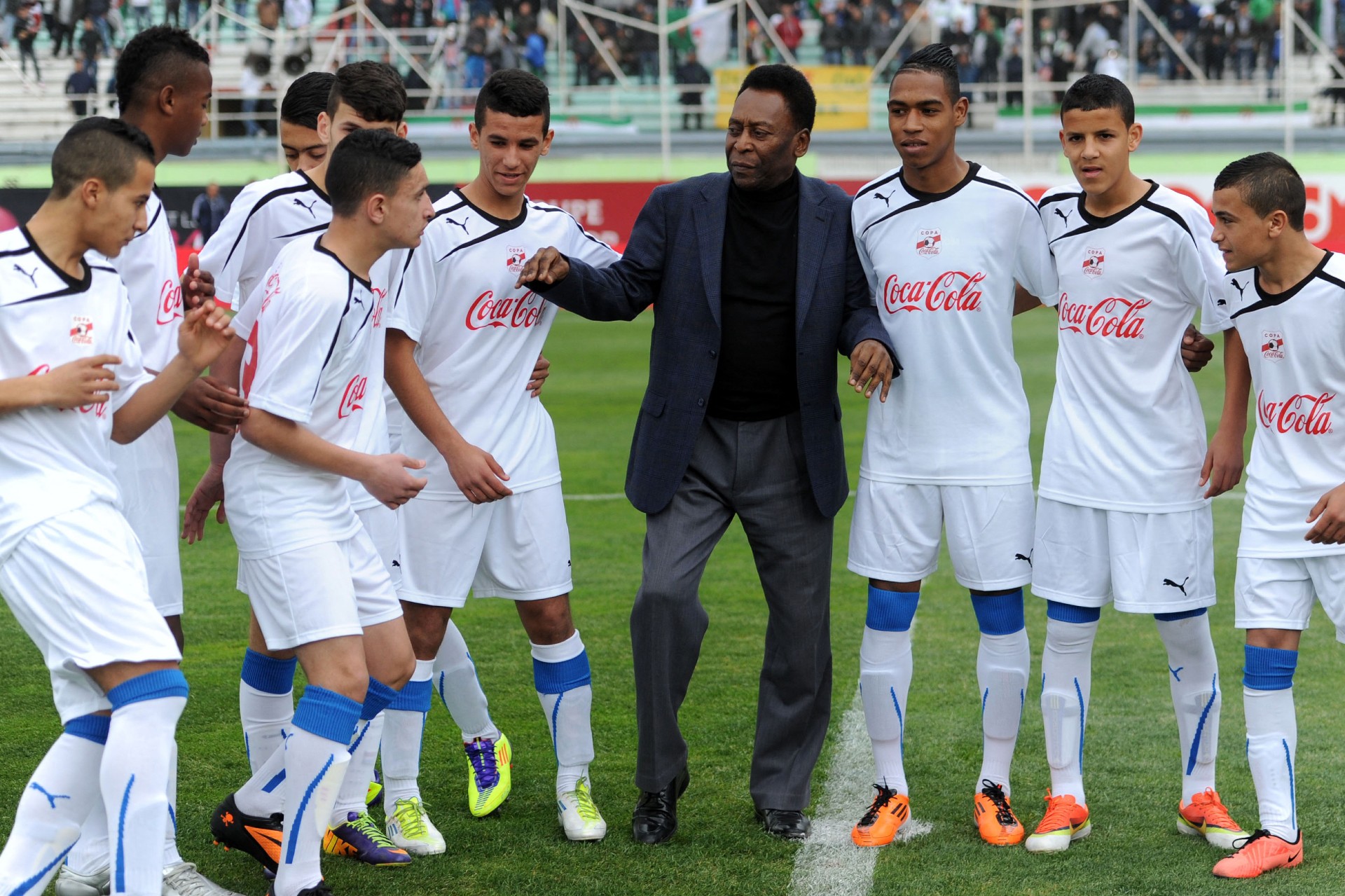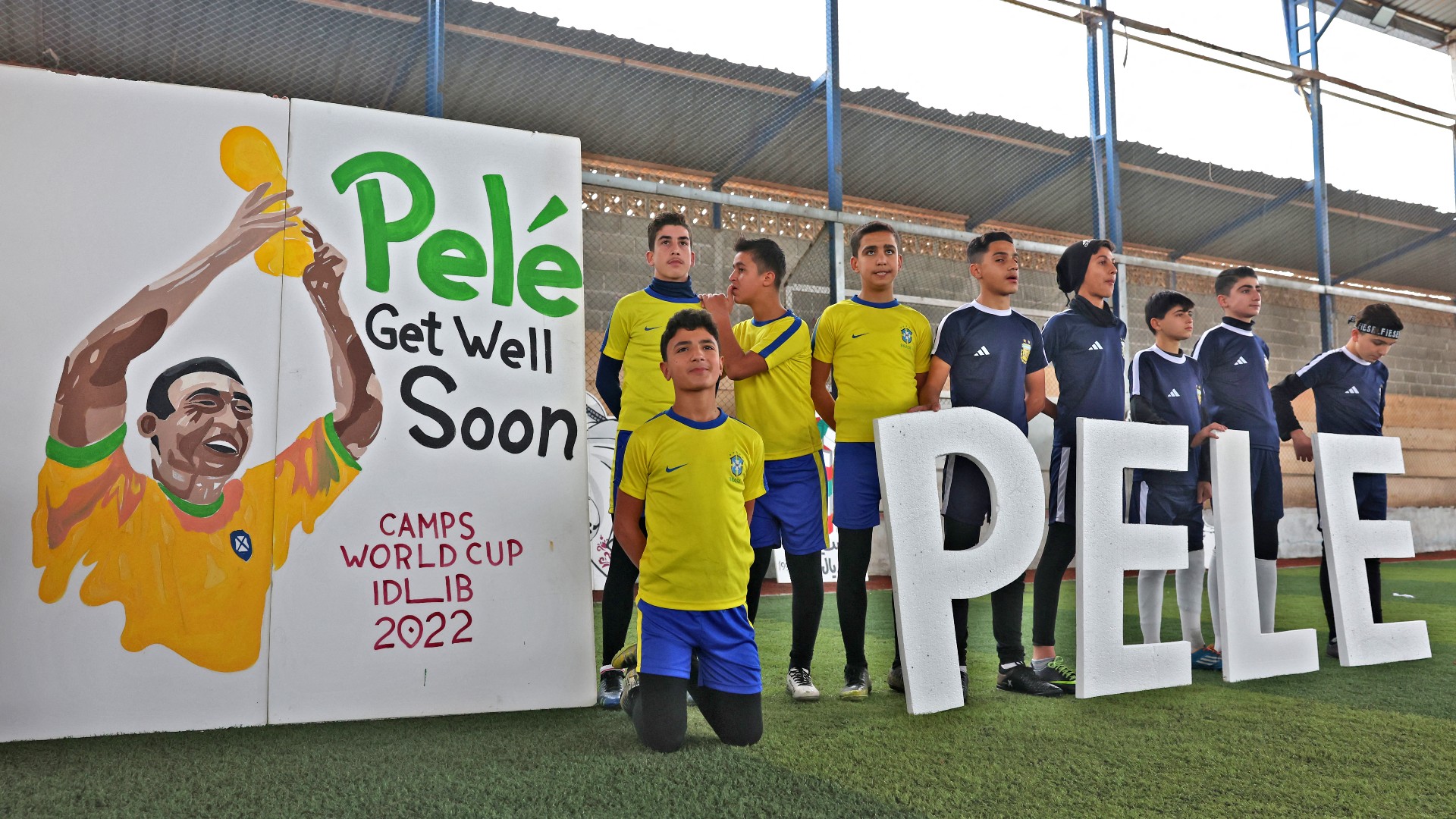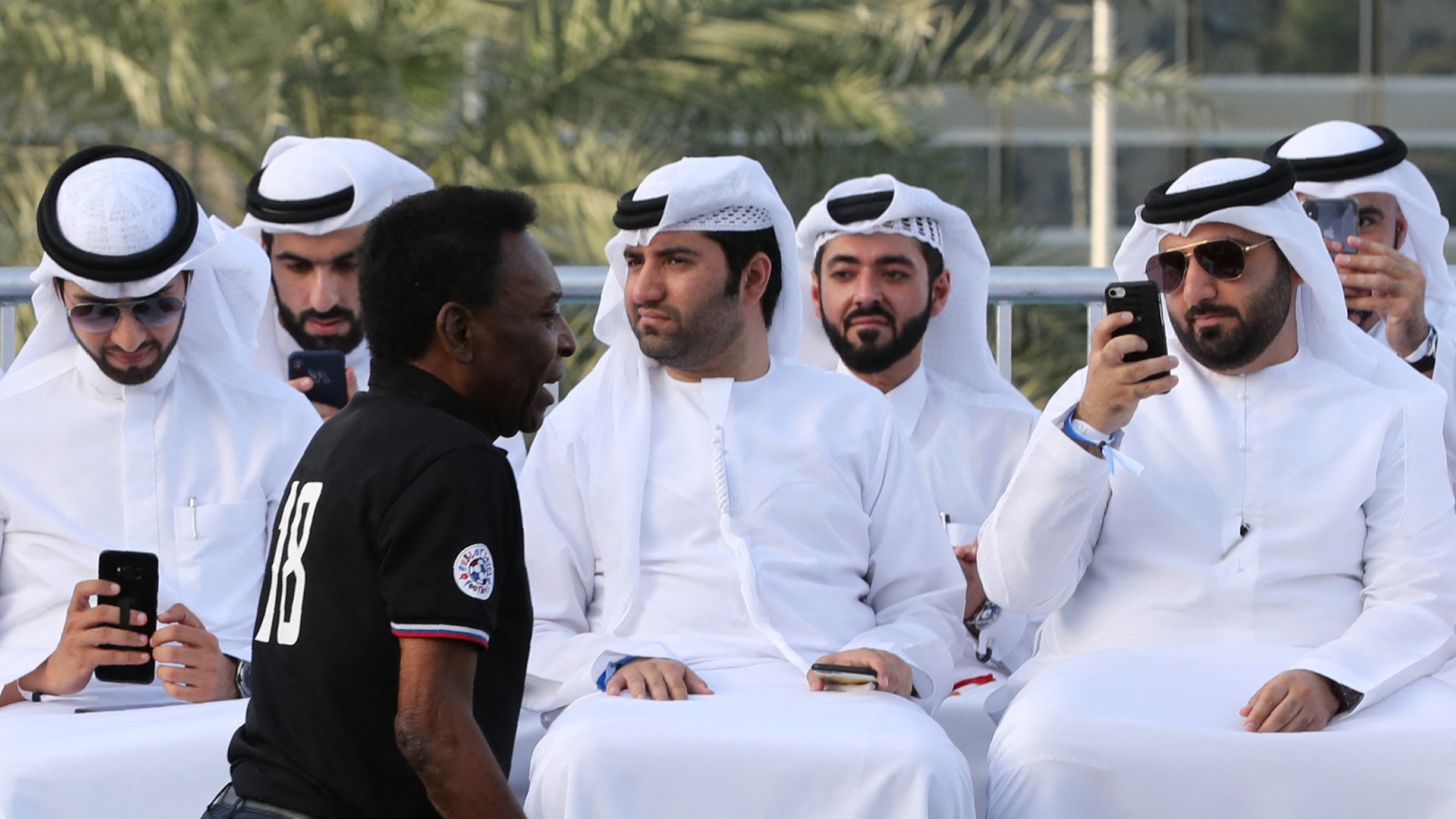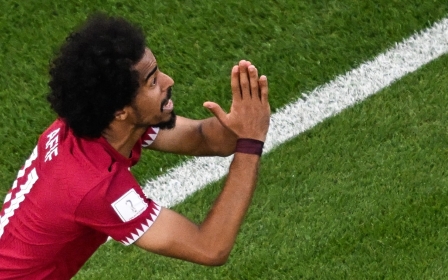Pele and the Middle East: 'A dream that came true'
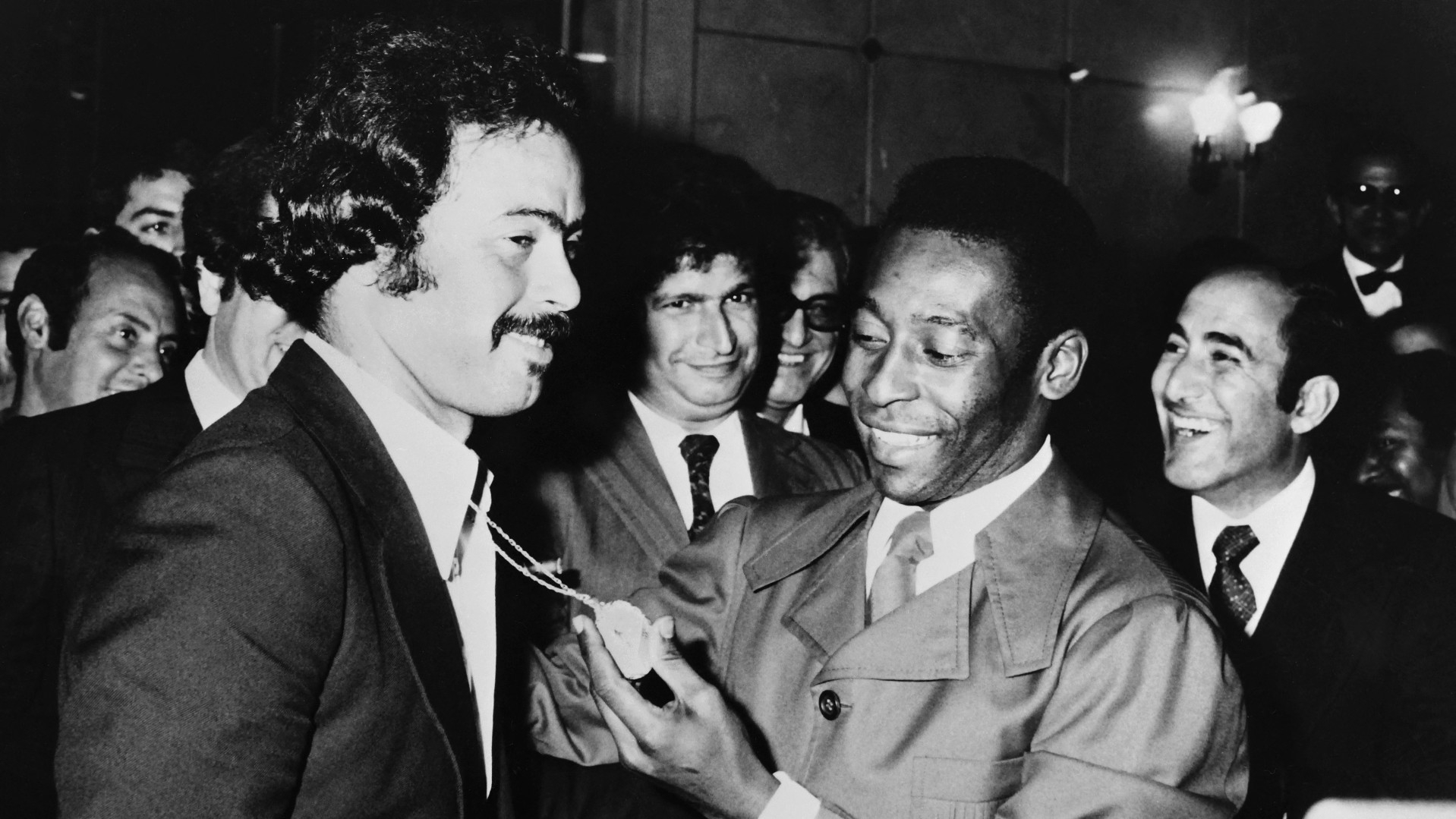
Edson Arantes do Nascimento, better known as Pele, has died at the age of 82 in Sao Paulo.
The Brazilian football legend, one of the greatest players of all time, was hospitalised in November after his cancer advanced.
Towards the latter end of his playing career, during which he won three World Cups and scored 1,279 goals, Pele became an international football ambassador, travelling to all corners of the globe to promote the game. He continued the role throughout his life, and even served as Brazil's minister for sports in the late 1990s.
He visited the Middle East and North Africa on numerous occasions, including a tour of the Gulf in 1973 and a visit to Lebanon just weeks before the outbreak of civil war in 1975. In every country in the region he visited, people still talk about the time "the King" came to town.
Youssef Berjawi, a 75-year-old veteran sports journalist, well remembers Pele's visit to Lebanon.
New MEE newsletter: Jerusalem Dispatch
Sign up to get the latest insights and analysis on Israel-Palestine, alongside Turkey Unpacked and other MEE newsletters
Berjawi, who had just started a career in sports journalism at the time, told Middle East Eye he was lucky enough to witness what he describes as "one of the most important historic sports event this small country had witnessed".
Santos tours the Middle East
Pele famously never played for any European clubs, spending the vast majority of his career at Santos in Brazil.
In the early 1960s, his Santos team dominated South American football, winning five consecutive Brazilian championships, the Copa Libertadores twice and defeating European clubs Benfica and AC Milan to win two Intercontinental Cups.
After conquering South America, the team began to tour the world, with Pele as the main attraction.
That featured a comprehensive tour of Africa in 1967, which included Algeria. He would go on to visit the North African country again in 2014, where he observed rising young Algerian stars and predicted that the national team would cause a surprise at the World Cup later that year. (They progressed to the first knock-out stage, where they lost to eventual winners Germany.)
Pele visited Iran too, scoring a hat-trick as Santos beat Iran's B team at Azadi Stadium in Tehran on 5 May 1972.
Then-Iranian crown prince Reza Pahlavi was in the audience, among 60,000 spectators in the newly inaugurated venue.
In 1973, the Brazilian icon and his Santos team visited Egypt, where they played a friendly match against Al-Ahly at Cairo International Stadium.
Pele told reporters at Cairo airport that he would score two goals, which is exactly what he did during a comfortable 5-0 win.
"In 1973 we began another year of travelling," he recalled in his autobiography. "We played in the countries of the Persian Gulf. We played in Egypt and Sudan, in Africa and Europe."
The Sudan trip featured a match against Al-Hilal in the city of Omurdman, while the visit to the Gulf took the Brazilian to Bahrain, Qatar and the United Arab Emirates.
In Qatar, which had recently become independent from British rule, Santos beat local side Al-Ahli 3-0 at the 2,000 capacity Doha Stadium. The setting was a far cry from the extravagant venues in and around the Qatari capital which have just hosted the World Cup.
A week later, the Santos side, which featured fellow World Cup winners Carlos Alberto, Djalma Santos and Clodoaldo, visited the also newly independent UAE. They beat Al-Nasr 4-1 in Dubai, the first of many visits by Pele to the Emirates.
Lebanon friendly days before war
After spending 18 years at Santos, Pele initially retired from club football in 1974, three years after already having retired from international football, but he didn't stop playing the beautiful game.
In April 1975, just days before the start of a 15-year civil war, Pele travelled to Lebanon as part of an international football tour.
The Brazilian legend participated in a friendly game between Lebanese Premier League side Nejmeh and a collection of players from across French-language universities.
Pele started the match as a goalkeeper before playing in the outfield and helping Nejmeh to a 2-0 victory.
His week-long trip included delivering a training session at the American University of Beirut. Tarek Nasser, a 64-year-old Lebanese businessman now based in the Ivory Coast, was a 17-year-old schoolboy when he got the chance to train with Pele at AUB.
"It's not easy to talk about a great man, a legend, like Pele," he recalls. "It was a long beautiful day. Pele trained us, played with us, and exhausted us with running drills. He was funny and joked around with us."
"I can’t describe what it felt like to be among football players, spending the day at AUB, training with Pele, listening to Pele, being told to move your ass by Pele," he continues.
"Someone passed the ball to Pele and he shot one of his beautiful strikes, and the goalkeeper, my classmate Abdel-Karim, blocked it. It was a surprise. Pele then ran and hugged him, and told him 'you have a bright future'.
"After school, Abdel-Karim applied for a scholarship to a university in New York, and wrote about that day with Pele in his application. The university checked with Pele, who at the time was playing with the New York Cosmos, and the great Pele confirmed the story and said he remembers him well. Abdel-Karim got his scholarship and played on the university team."
A few days after Pele left, Christian gunmen killed 30 Palestinian refugees on a bus in the Beirut district of Ain al-Rummaneh, in what later became known as Black Saturday, sparking the civil war that would devastate the country until 1990.
"It was like a dream that came true just a week before the unfortunate incident that marked the beginning of the civil war," Berjawi recalls.
"More than 50,000 spectators attended the great game against Nejmeh football club. Pele played only for 15 minutes as a goalkeeper, but when he left, you could hear the stadium chanting just one word - 'PELE' - so he came back and finished the match," he said.
The memories Pele of course outlasted the conflict. But many mementos did not.
Nasser says: "We took photos with him, but our school was bombed during the civil war, and the photos were lost. We were sleeping in classrooms at the time. I tried many times to find the photos but failed."
Turkish-American producers sign Pele
In early 1975, two Turkish-American brothers helped to persuade Pele out of retirement.
Ahmet and Nesuhi Ertegun, renowned executives at Atlantic Records, founded the New York Cosmos in 1970.
The brothers, who were born in Istanbul in the then-Ottoman empire, moved to Washington, DC in 1935 after their father, Munir Ertegun, was appointed Turkish ambassador to the US.
After a highly successful career as record producers, they decided to set up a football team and made it their ambition to sign Pele.
Following several attempts to lure the star, with the aid of then US secretary of state Henry Kissinger, Pele eventually signed in June 1975.
His presence helped revolutionise the sport in America, which up until that point had mostly featured amateur players.
Pele finally retired for good in 1977, but he remained an important ambassadorial and commercial figure in football throughout the rest of his life.
Earlier this year, he congratulated Saudi Arabia's women's team for its first ever international victory. Just days ago, he also applauded Morocco - a nation he visited several times - after they became the first African team to make it to a World Cup semi-final.
"I couldn't fail to congratulate Morocco for the incredible campaign. It's great to see Africa shine," he wrote on Instagram.
Middle East Eye delivers independent and unrivalled coverage and analysis of the Middle East, North Africa and beyond. To learn more about republishing this content and the associated fees, please fill out this form. More about MEE can be found here.


